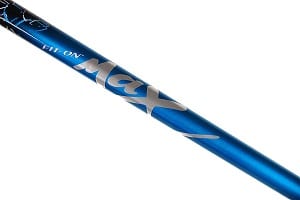For a golfer, the prospect of buying new golf shafts or reshafting old club heads can be exciting. Unfortunately, some golfers do this as a matter of necessity and not simply for an upgrade.

Of course, this occurs all too frequently because otherwise perfectly good shafts fail before their time from abuse, misuse, and from golfers failing to observe some general guidelines about golf shaft care.
Some of it is excusable. Some of it is unavoidable. Much of it is not. Here are six things that can ruin perfectly good golf shafts – if you didn’t know them yet, now you do.
1. Not storing your shafts in a proper golf bag (with full-length dividers)
As it relates to the sport of playing golf, what’s more mundane than taking your clubs from hole to hole in the back of a golf cart? Not too much, if you ask us.
All the same, not storing your clubs properly while transporting them, either in a golf cart or in the trunk, can spell doom for them.
Golf clubs should be transporting from the safety of a well-cushioned cart bag while in a trunk or in a golf cart, preferably one with full-length dividers that keep the shafts from rattling around – which will damage them.
2. Exposure to water (rust)
Nowadays, pretty much all high-performance golf shafts are made from carbon fiber, graphite, and other hybrid composite materials. These don’t rust.
Some iron shafts are still made of steel. Steel does rust, and exposure to water will ruin it.
But here’s another thing. Even though water won’t outright destroy epoxy or graphite shafts, it will damage your golf bag and your other golfing equipment. If your gear gets wet (shafts included) dry it.
3. Fat shots
A shaft that’s too long, poor form, and just plain accidents can all cause fat shots. They don’t just hurt your wrists – they can cause fractures, delamination, cracking, splitting, and other types of damage to golf shafts. Occasionally, a shaft will break outright due to a heavy-handed fat shot.
Play with a shaft that is the proper length, weight, and flex, practice religiously, and for the love of your shafts, use a tee.
4. Hitting rocks or anything else on the backswing
This is even worse than fat shots. Hitting rocks, dirt, branches, and other obstacles on the backswing puts your shafts at the same risk of cracking and breaking. Be very careful to take a swing only in a clear area if you can help it at all.
5. High heat
At the end of a long day, you might be tempted just to leave your clubs in the trunk. That might be the worst thing yet.
Exposure to high heat – such as storing your clubs in the truck, the backseat, or the garage – will cause the epoxy that fixes the head and shaft together to become weak and break down. This is a common failure point for golf shafts.
6. Random abuse
Finally, we have random abuse. It’s hard to define this because it could be anything. Leaning on a shaft, accidentally banging a shaft into a table or bench, resting the head on an abrasive material, dropping the golf shaft, or leaving it out in the heat. They all qualify as abuse and they can all damage golf shafts.
Where Can You Buy Golf Shafts Online?
Maybe you’re getting to this article just a bit too late and you’ve already done the damage. Well, if you need to buy golf shafts, there is at least a spot of good news.
Check out Dallas Golf Company at DallasGolf.com and check out the golf club shafts they have for sale. Whether you’re looking for Aldila, Fujikura, MCA or True Temper, graphite or steel shafts, now or used, high or low flex, they have what you need.
Visit their website today to see more of what they offer and give them a call at 800-955-9550 for additional assistance.
For more information about Ping Golf Driver Shafts and Sun Mountain Golf Stand Bags Please visit: Dallas Golf Company Inc.




